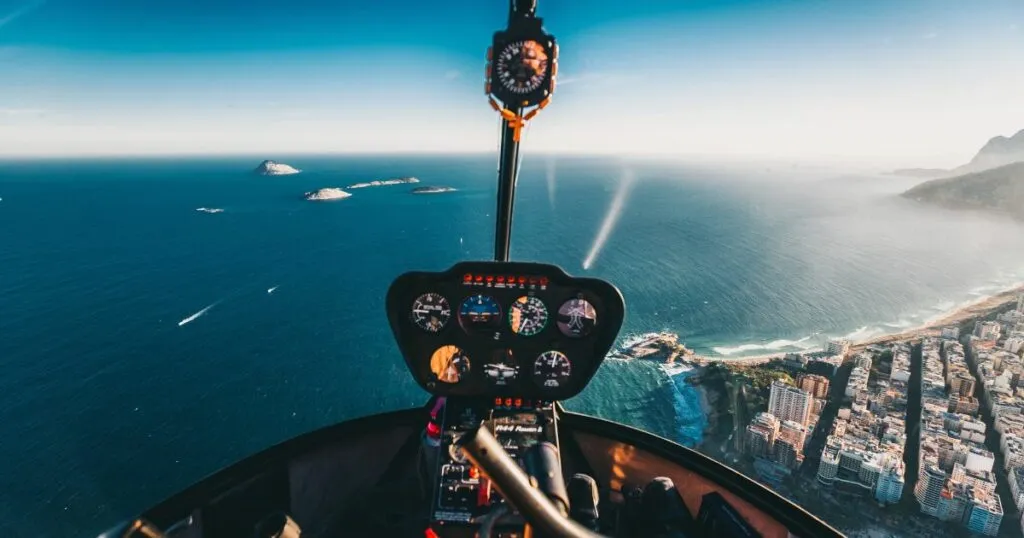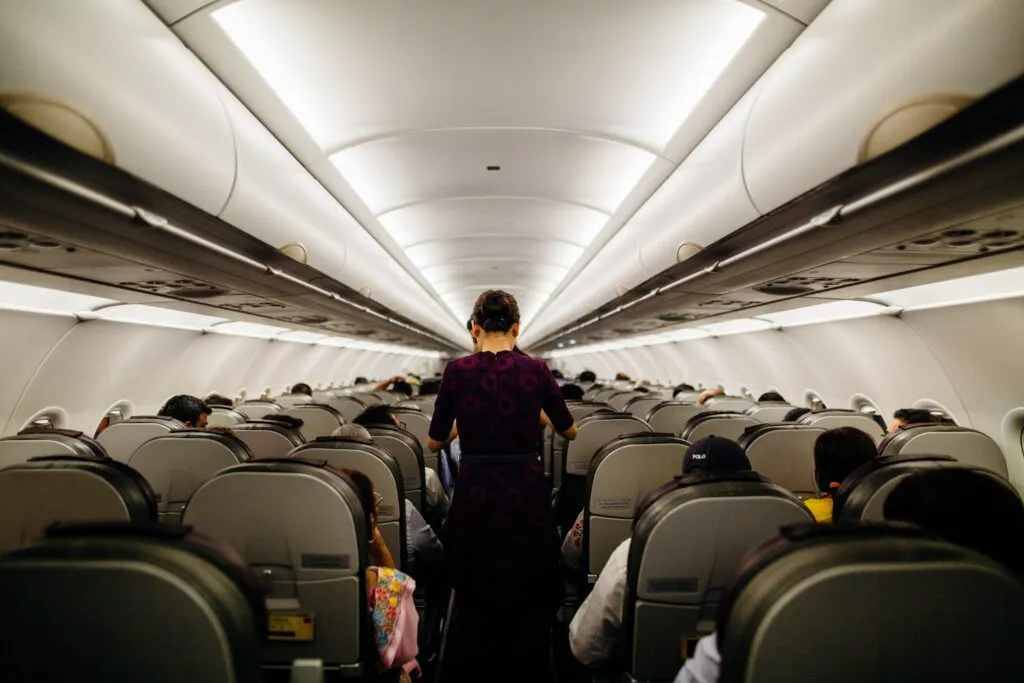
Overcoming Flying Anxiety: A Guide for First-Time Flyers and Solo Travelers
There are multiple reasons for feeling anxious about flying on an airplane. Hurtling through the air at hundreds of miles per hour high above the Earth in a metal tube does not come to us naturally. Despite the statistics that prove flying is safer than driving a car, as well as some of the other risky things we do daily, anxiety about flying can creep in.
Adding to the stress are the logistics of getting to the airport, navigating check-in and security, getting on and off the airplane, claiming luggage, dealing with ground transport in an unfamiliar city, finding bathrooms, being close to people who may be ill … Flying is complicated!
This guide is for anyone who has ever felt fear around aviation, airports, or any other aspect of air travel. These flight anxiety tips are tips for first-time flyers and for those flying solo. They also cover tips for international travel, some of the best ways to sleep on a plane, and other tips for flying anxiety.

Top 10 Flight Anxiety Tips
Say Goodbye to Flying Anxiety with Jayride’s Top 10 Tips! Get ready for a stress-free flight experience with our helpful tips on how to minimize anxiety during air travel. Whether you are flying alone for the first time or are a seasoned business traveler, you can take some easy steps to minimize anxiety and have a better travel experience.
1. Know your triggers:
Do your best to identify the events that make you nervous about flying. Is it turbulence? Fear of being unable to properly navigate baggage check, security, and other airport protocols? Loud noises on the airplane? Taking off or landing? Catching an illness in a confined space crammed with other travelers? Knowing what causes your fear is the first step for addressing your anxiety.
2.Inform yourself:
Acquiring information that can settle your fears is the first step for reducing anxiety around flying. If it’s fear of airplane crashes, do a Google search of “why airplane travel is safe.” If turbulence is your trigger, spend a few minutes reading about what causes turbulence and how airplanes are designed to fly through it safely.
3.Remediate:
Our phobias around flying are usually emotionally based, not logically founded. Informing yourself about a specific phobia doesn’t guarantee it will no longer cause anxiety for you, but knowing more about what alarms you can diminish the intensity.
The following tips are activities you can do during travel to address common fears associated with plane travel. While not every tip may relate to your particular fear of flying, collectively they can help reduce your general anxiety. Because flying for the first time, or flying alone for the first time, can feel overwhelming, these are also the best tips for first-time flyers with anxiety, and also the best tips for flying alone for the first time.
4. Avoid middle seats:
Many people who suffer anxiety during travel prefer the aisle seat to feel less claustrophobic and avoid looking out the window. Others like the window seat so they can see outside the aircraft. Either way, avoiding the middle seat is best if anxiety is a concern.
5. Arrive early for your flight:
Arrive at least two hours before domestic flights and three hours before international flights. Arriving early can also give you the extra time to grab a bite to eat, have a cup of coffee, stroll around the terminal, read a book, or do other stress-reducing activities.
6. Familiarize yourself with the process:
When you get to the airport, it may seem like everyone knows exactly what to do and when to do it. However, the dynamics of flying have changed over the years; each airport and airline operates a little differently, and many people possess outdated information or misinformation. It’s often better to be a curious passenger who is willing to learn than an experienced flyer who thinks they know everything. It’s best to understand in advance the baggage requirements, check-in policy, and other procedures specific to your flight and your airline. It’s also helpful to read about the specifics of the departure and arrival airports you will be traveling through because the more you know in advance, the less likely you are to feel anxiety. Visit the Jayride website to know more about the airports on your itinerary.
7. Visit a quiet place in the airport before your flight:
Airports can be loud and chaotic and are clearly not ideal environments for avoiding stress and anxiety. While waiting for your flight, you may be able to find a gate area that isn’t being used. Most airports have lounges, and some have chapels for quiet reflection. Spending time in a quiet place before departure can help reduce anxiety and even make sleeping easier during your flight.
8. Bring noise-canceling headphones:
Over-the-ear headphones are generally more effective than earbuds. These will efficiently block the noises made by the airplane and your fellow passengers, allowing you to focus on your thoughts, relax, and ignore sounds that may trigger anxiety. They may also help you sleep, decreasing anxiety and making time appear to pass more quickly.
9. Talk to your travel companion:
Talking about topics that interest you and are calming is a great way to distract your mind and pass the time. Flight attendants can also provide tips on reducing your anxiety.
10. Be prepared for international travel:
International travel involves even more documentation, passing through customs, longer flights, and has the potential for language barriers, unfamiliar practices, and many more unknowns than traveling domestically. For these reasons, having as many anti-anxiety strategies as possible in your toolkit is vital. Ignore advice about breathing exercises. Many therapists and flight advice columns mistakenly say that taking deep breaths and breathing exercises will reduce anxiety during flights. Research shows that breathing exercises to reduce fears around flying actually have the opposite effect and are counterproductive.
When you reframe your thoughts about flying, you’ll find you might be better able to reduce your emotional discontent. Though you may never come to love flying, you might discover you can enjoy it, a little!
